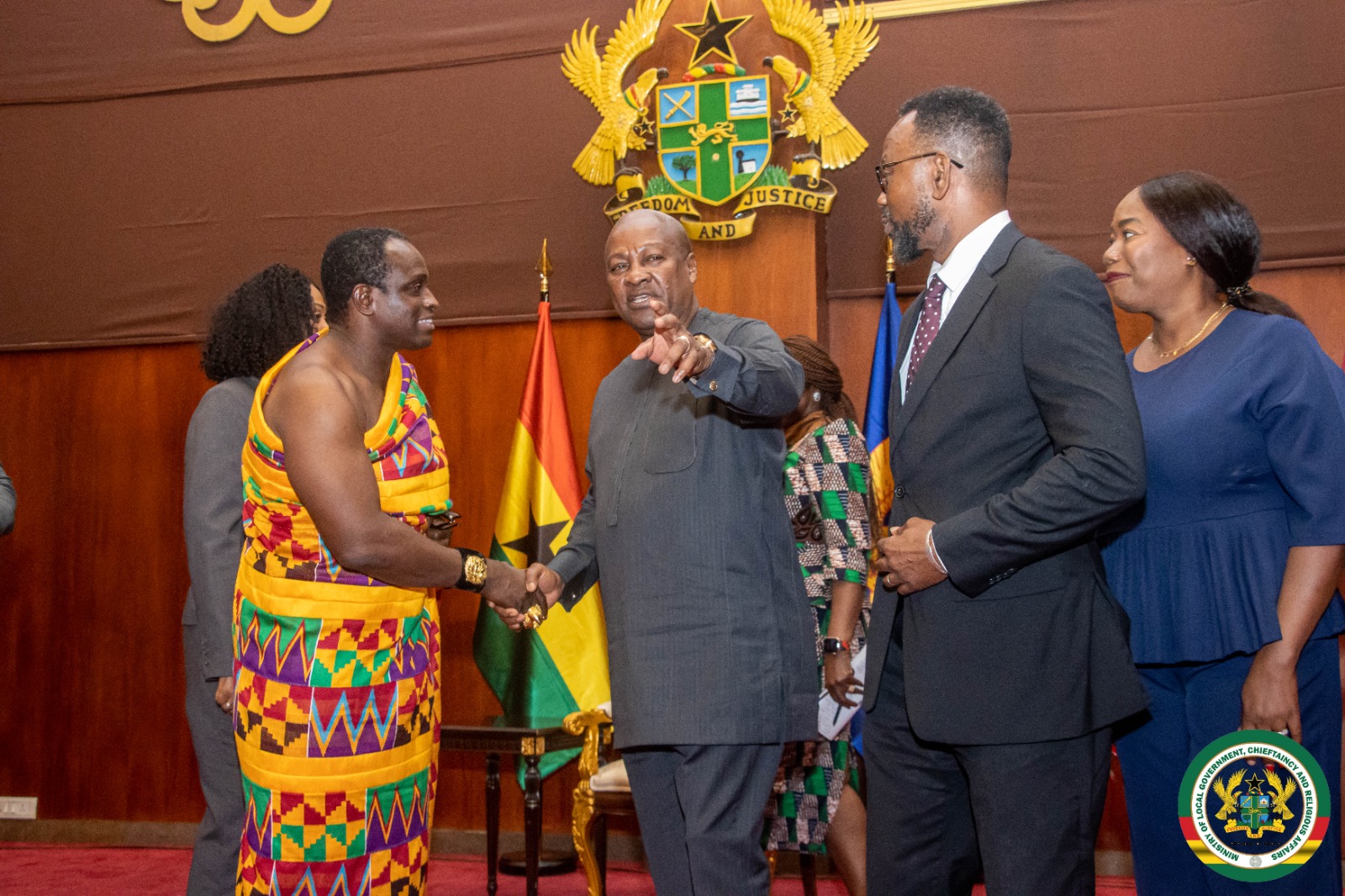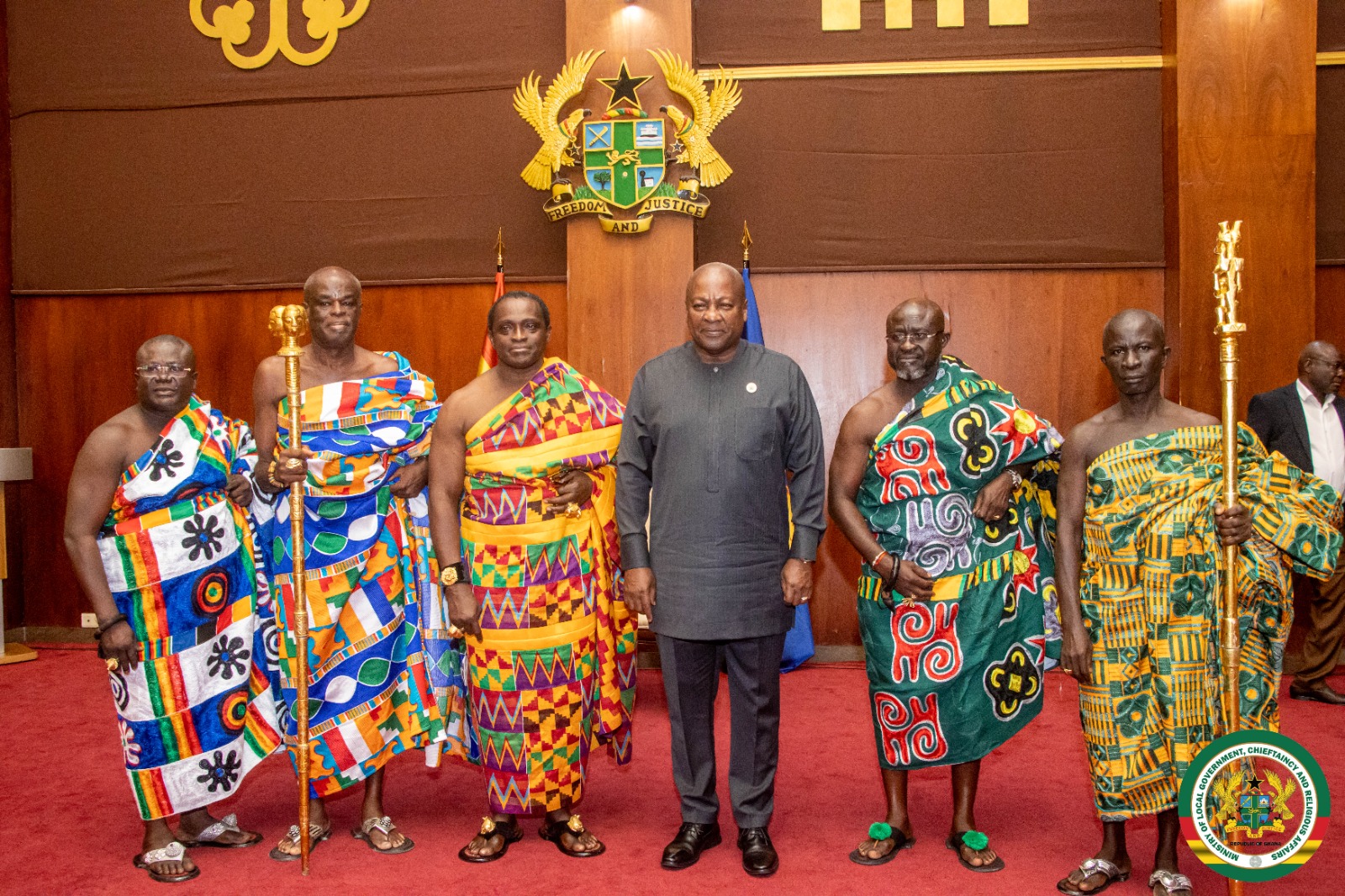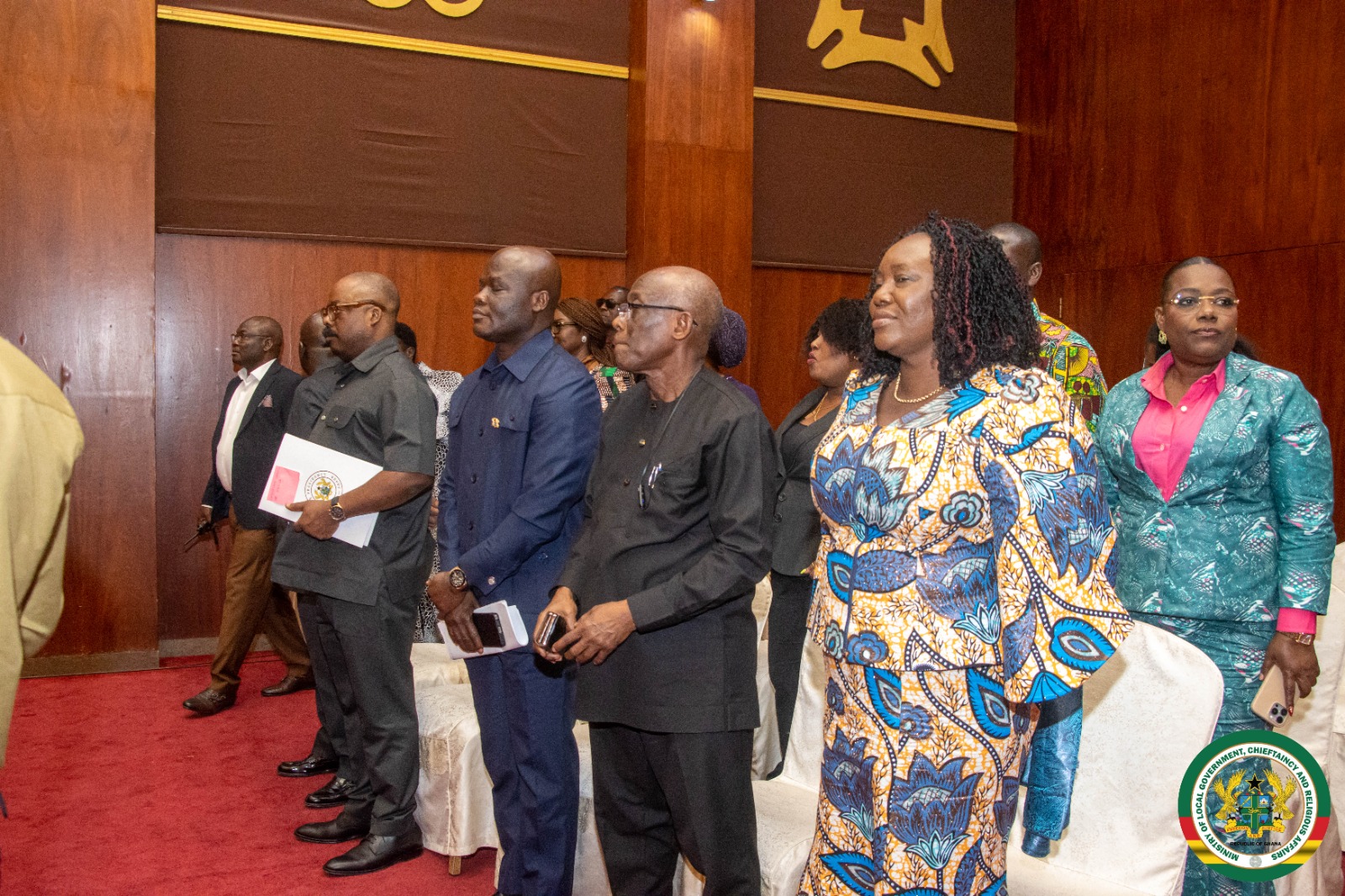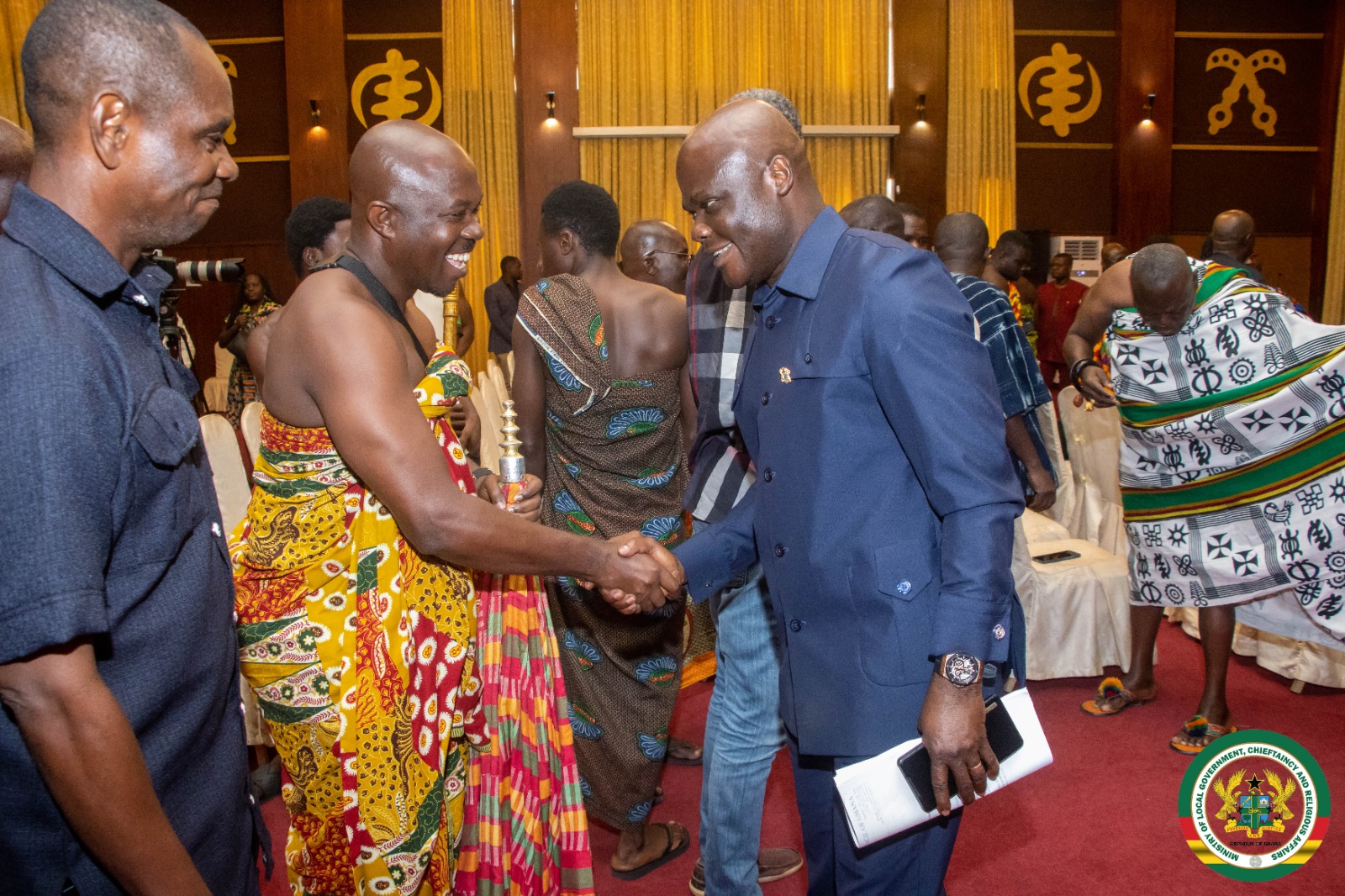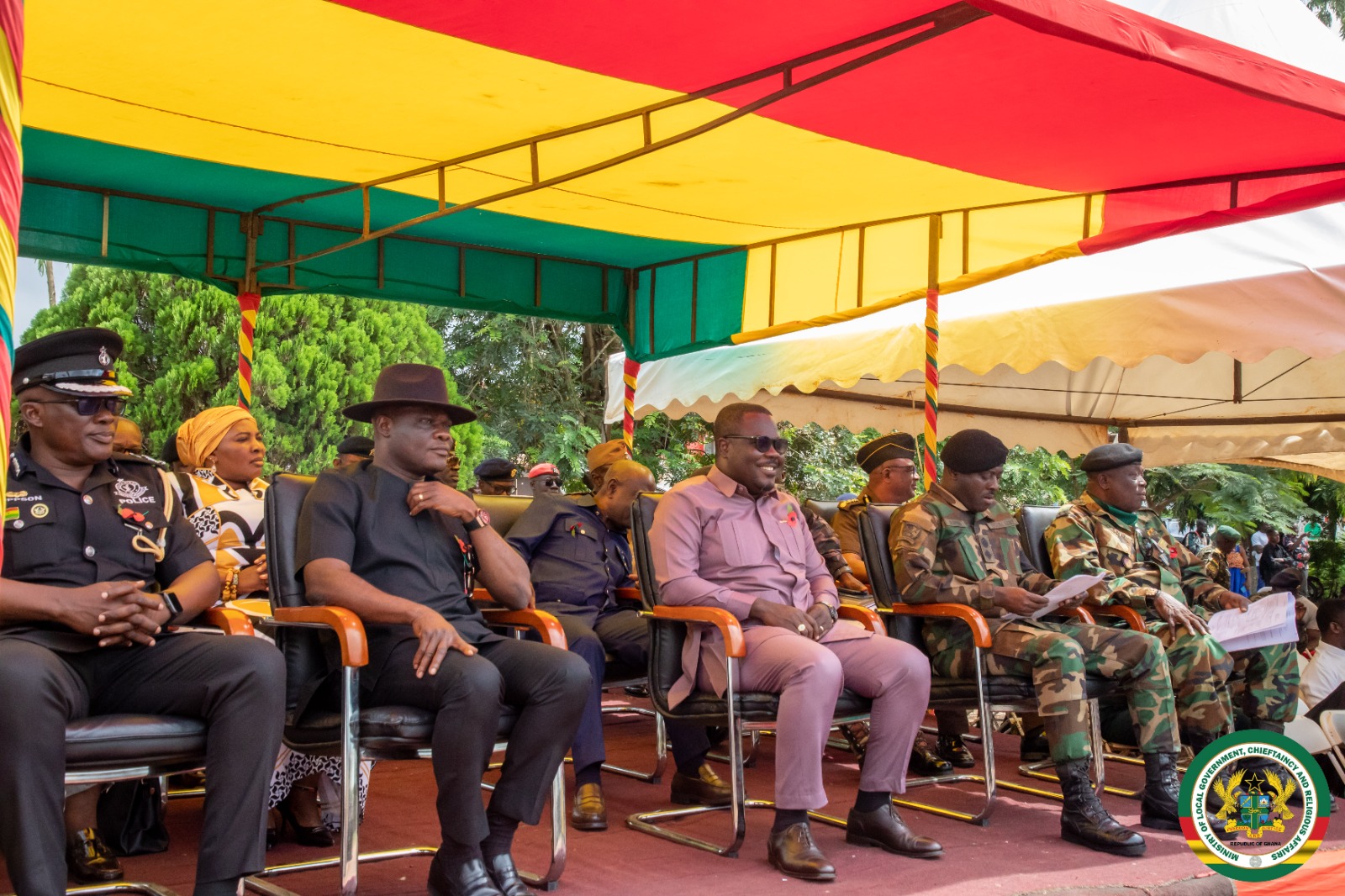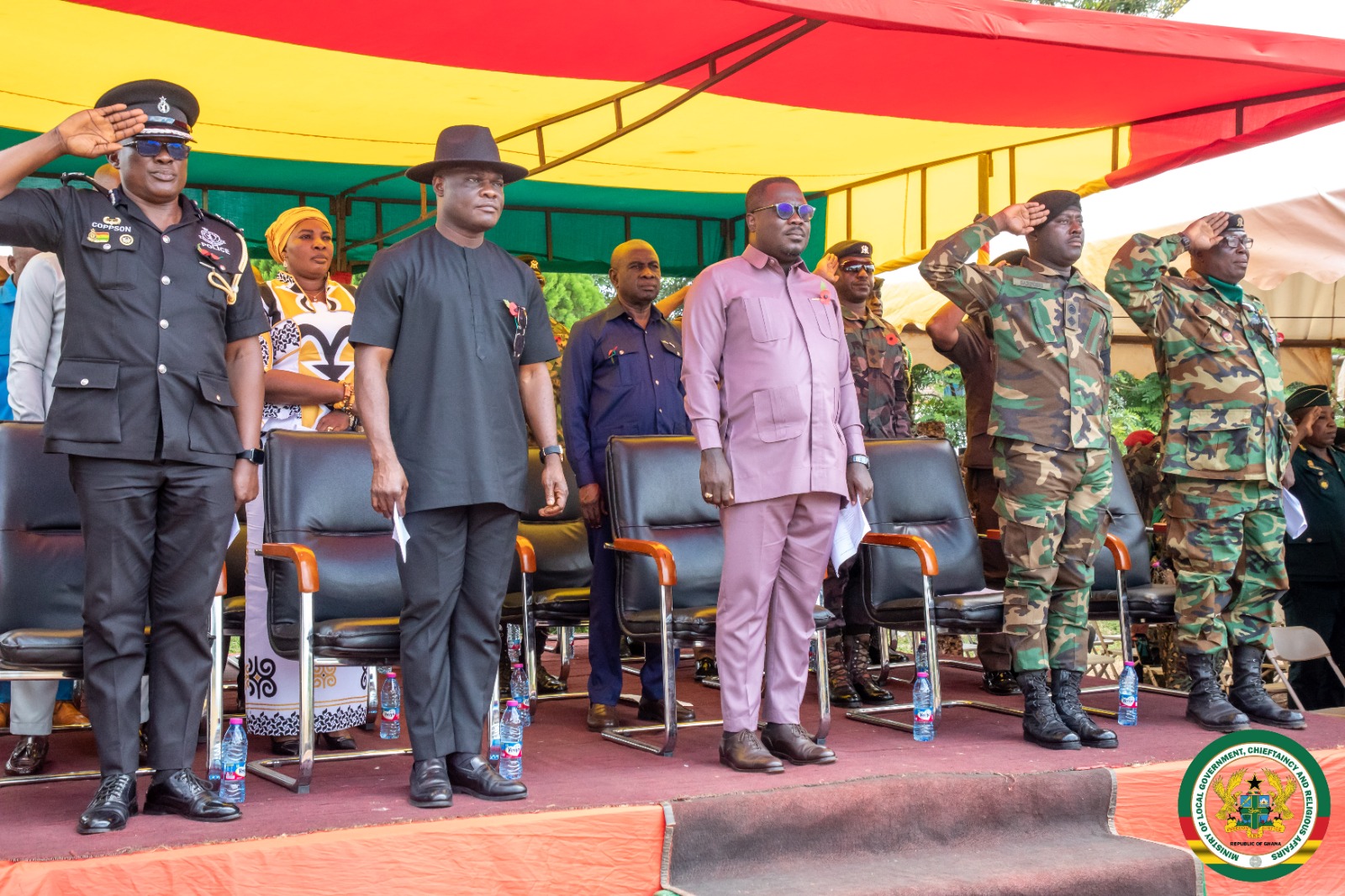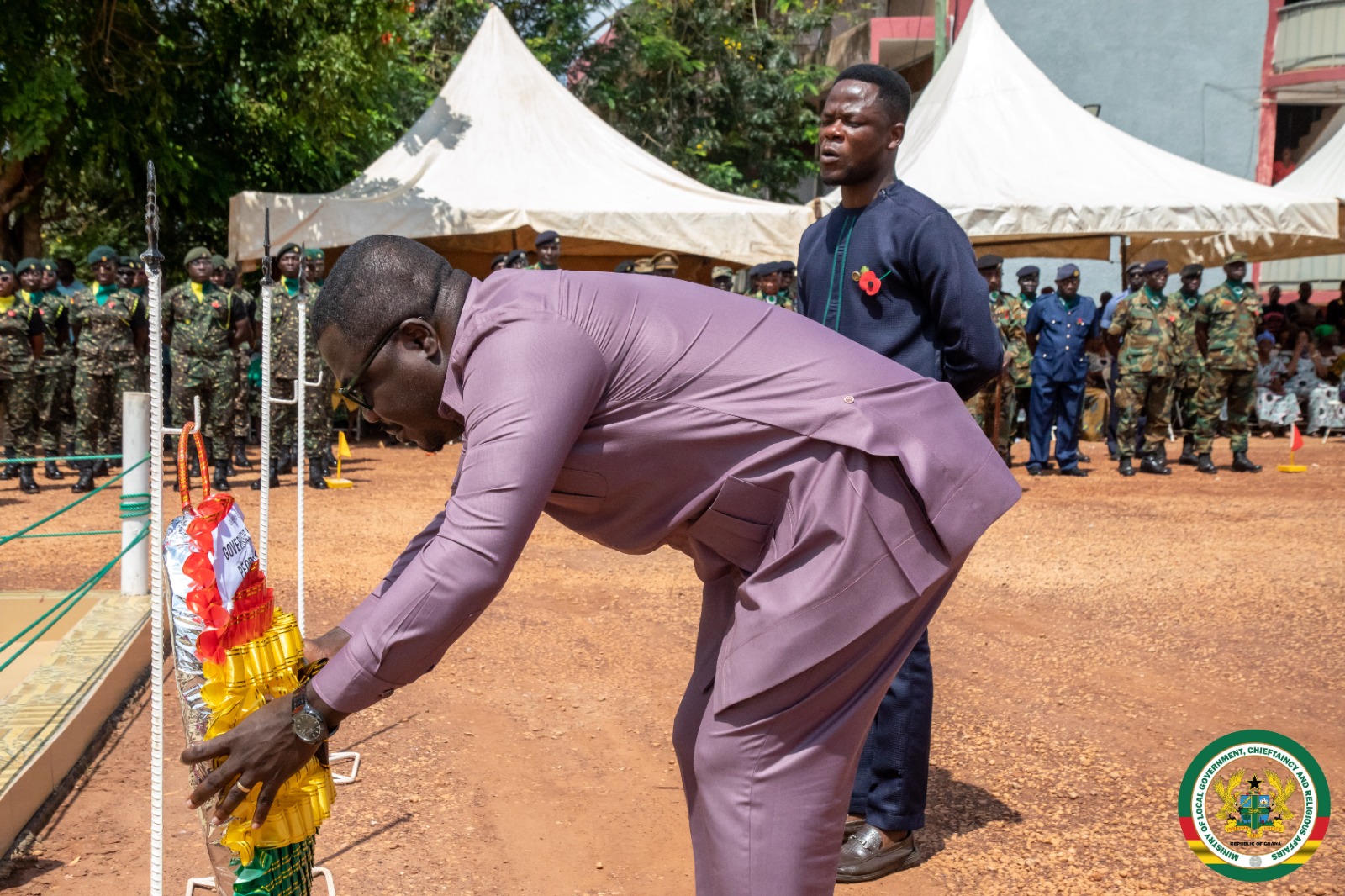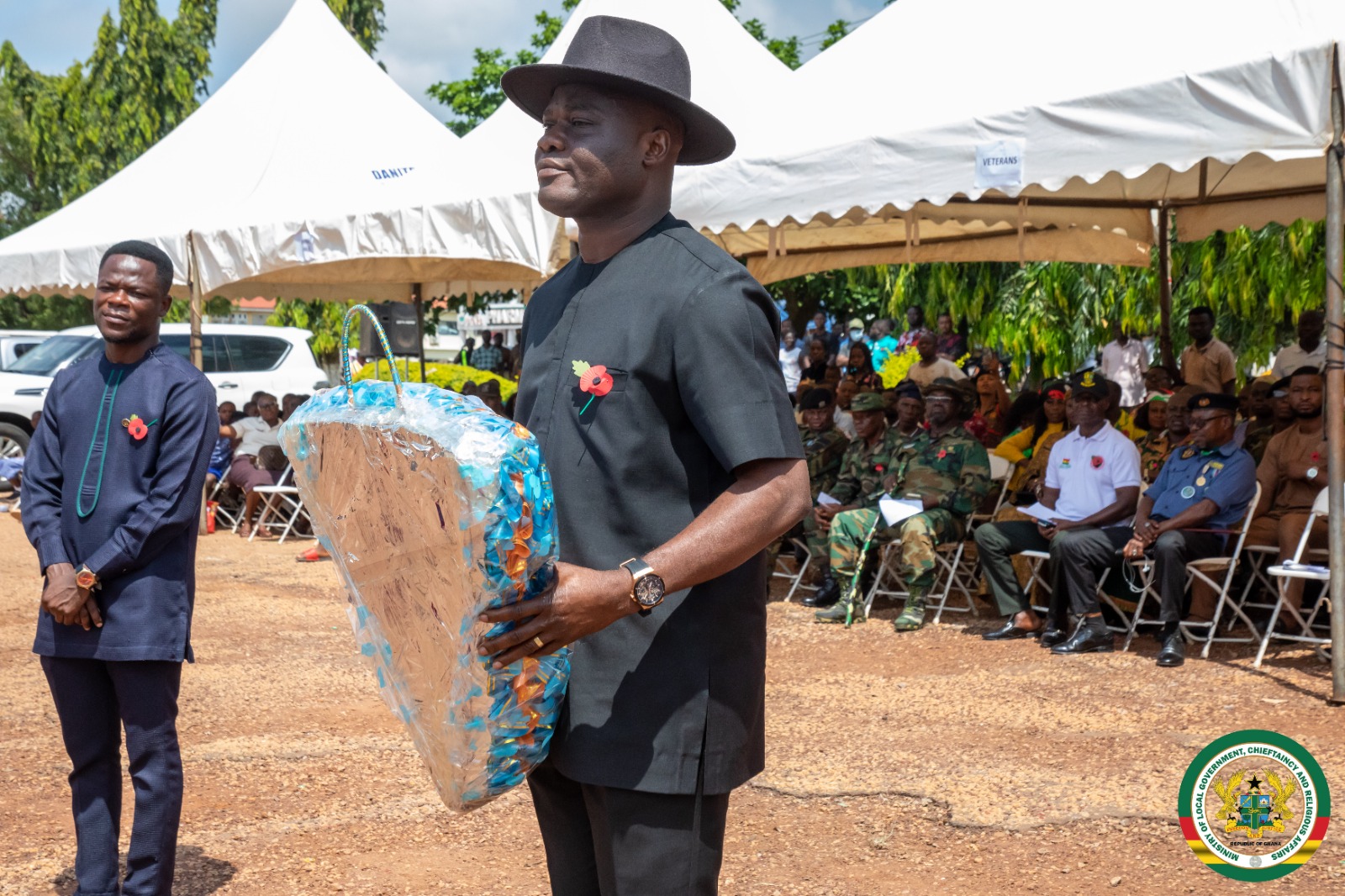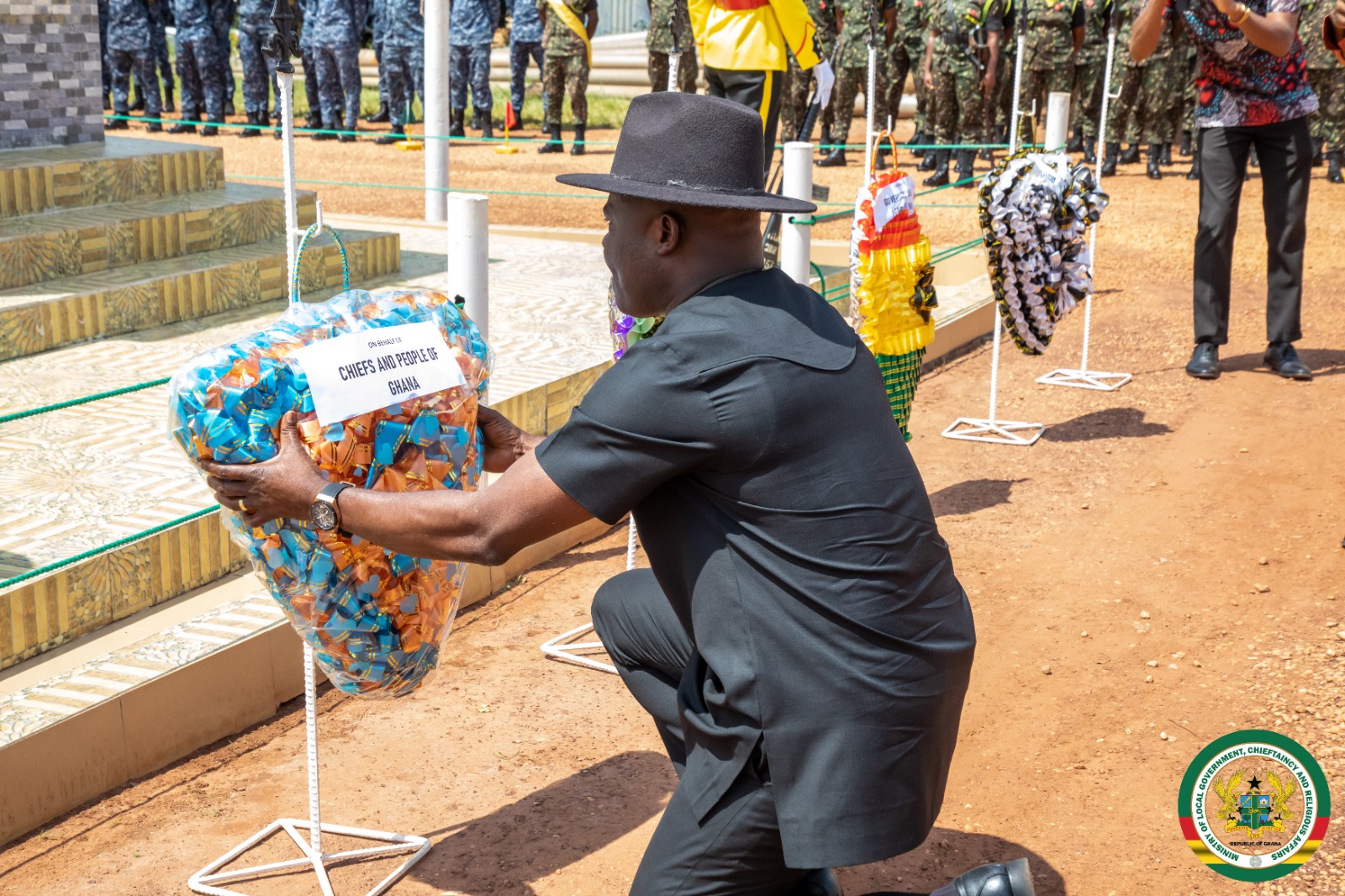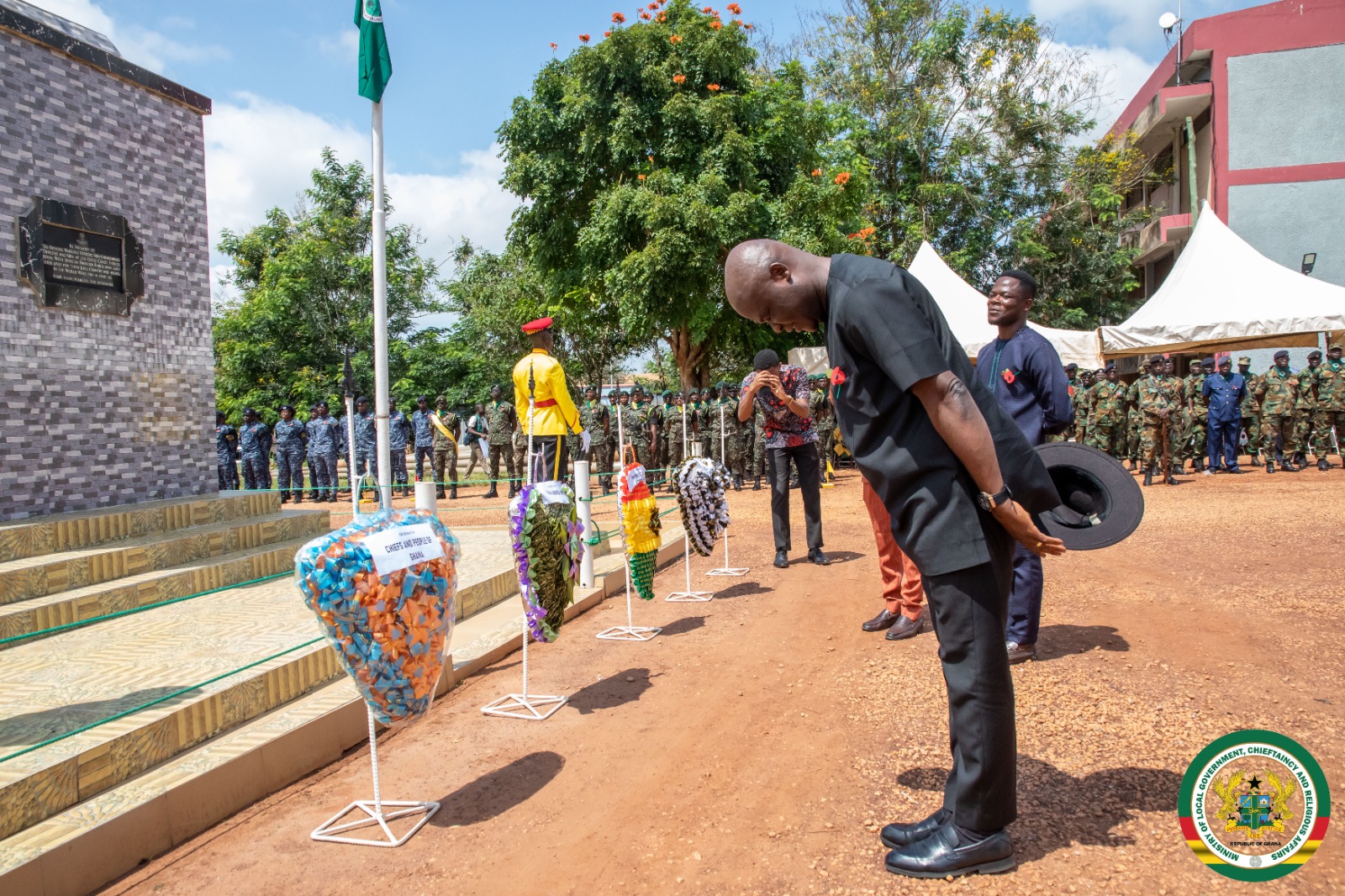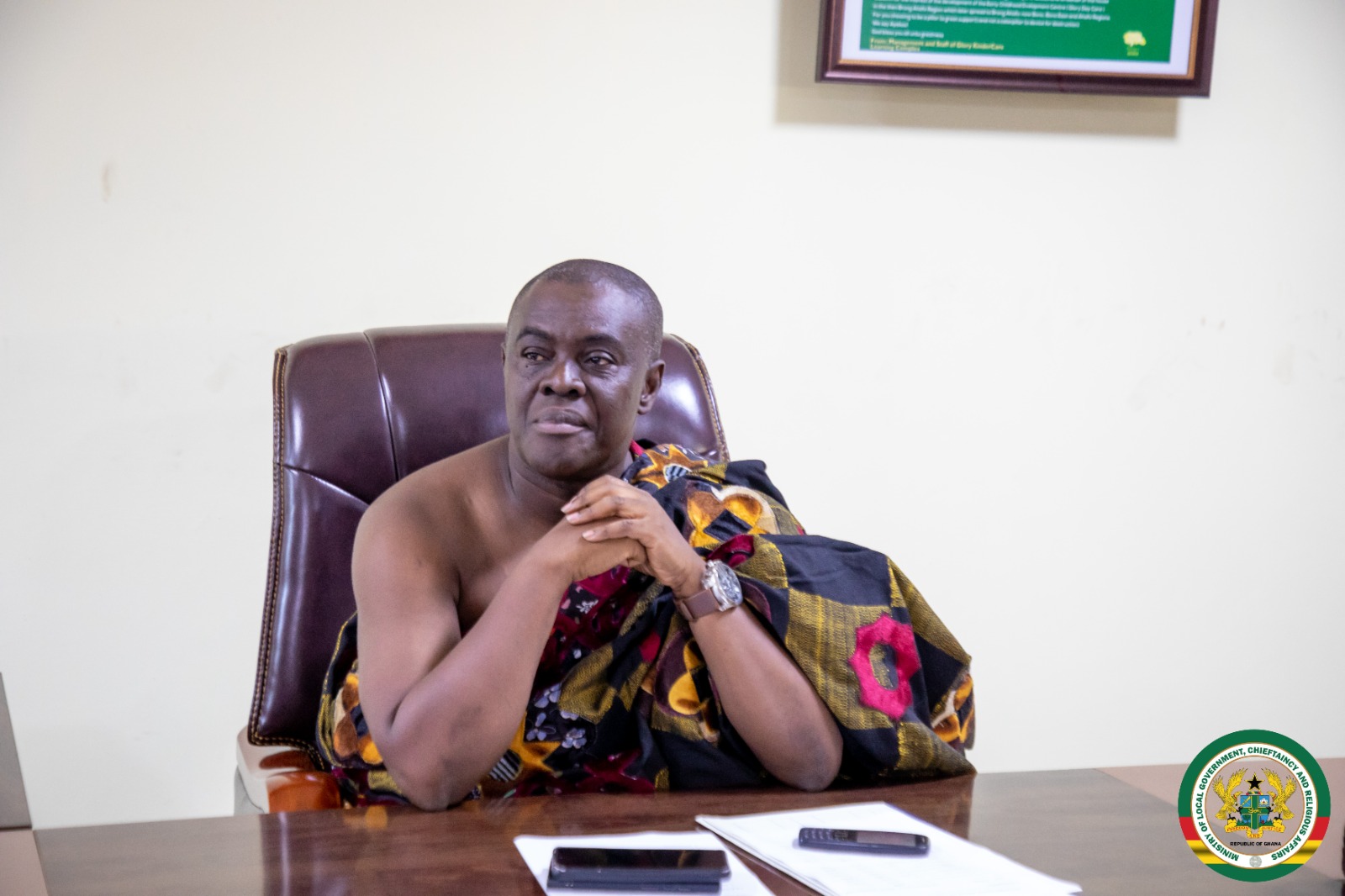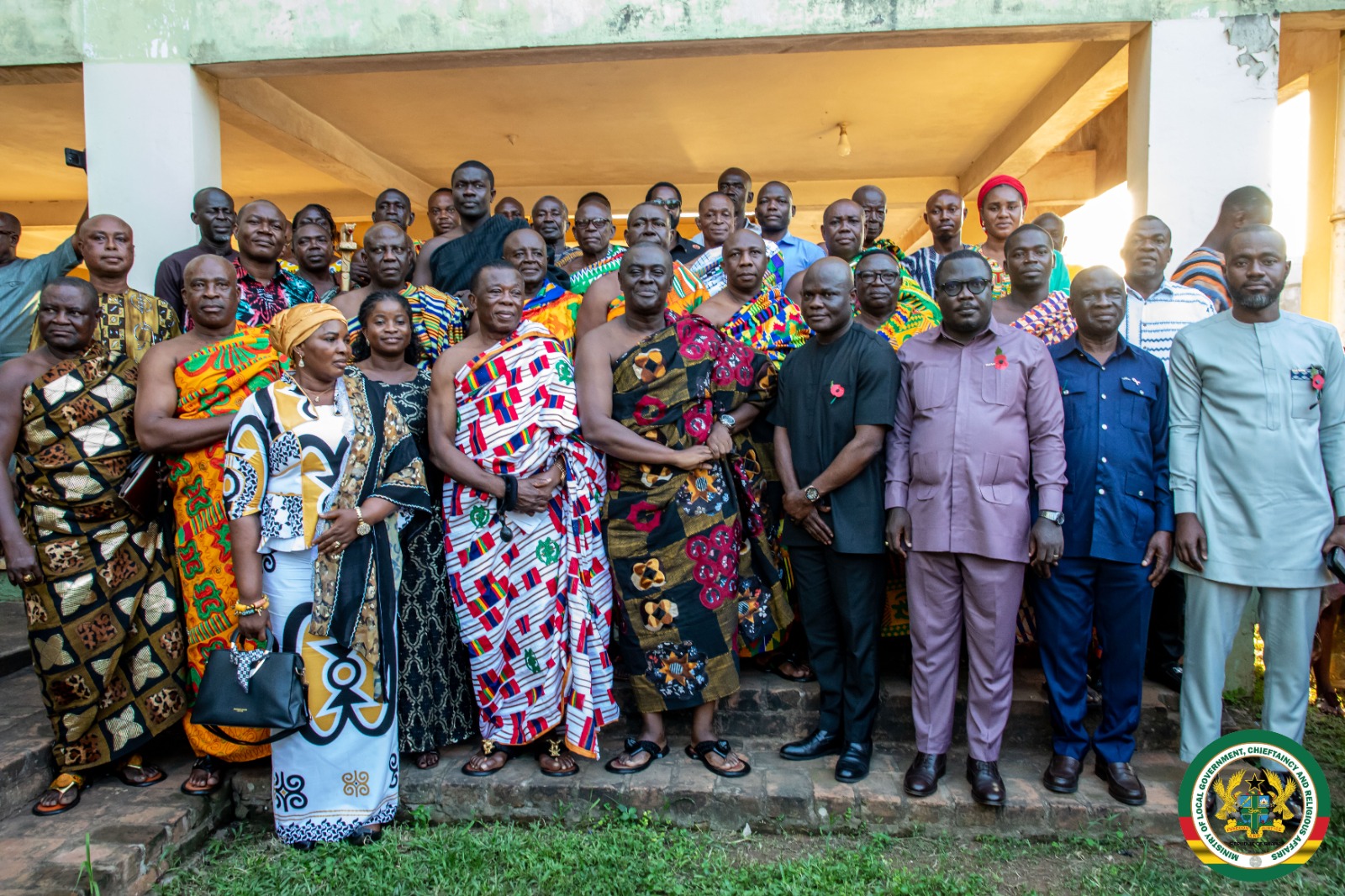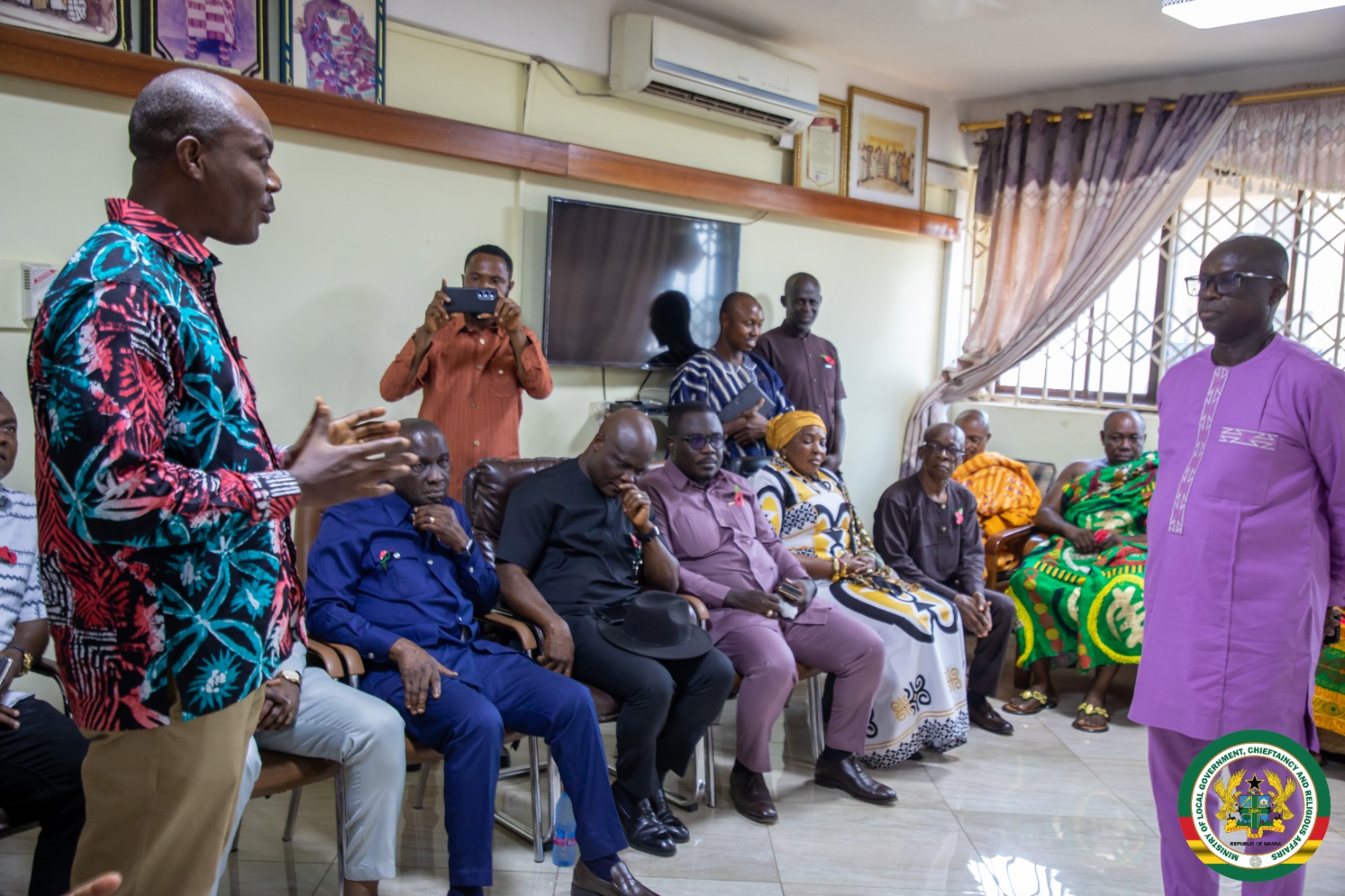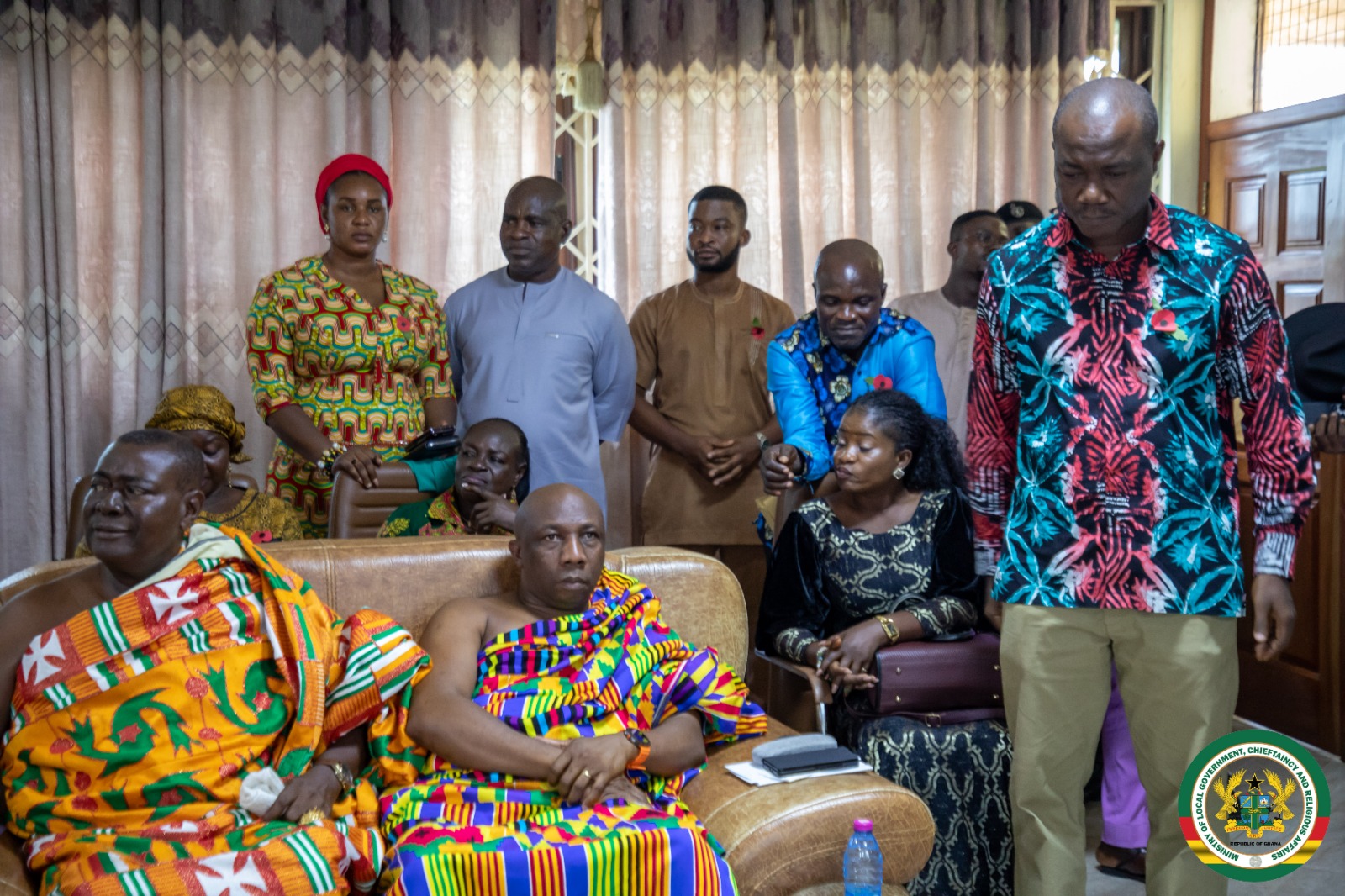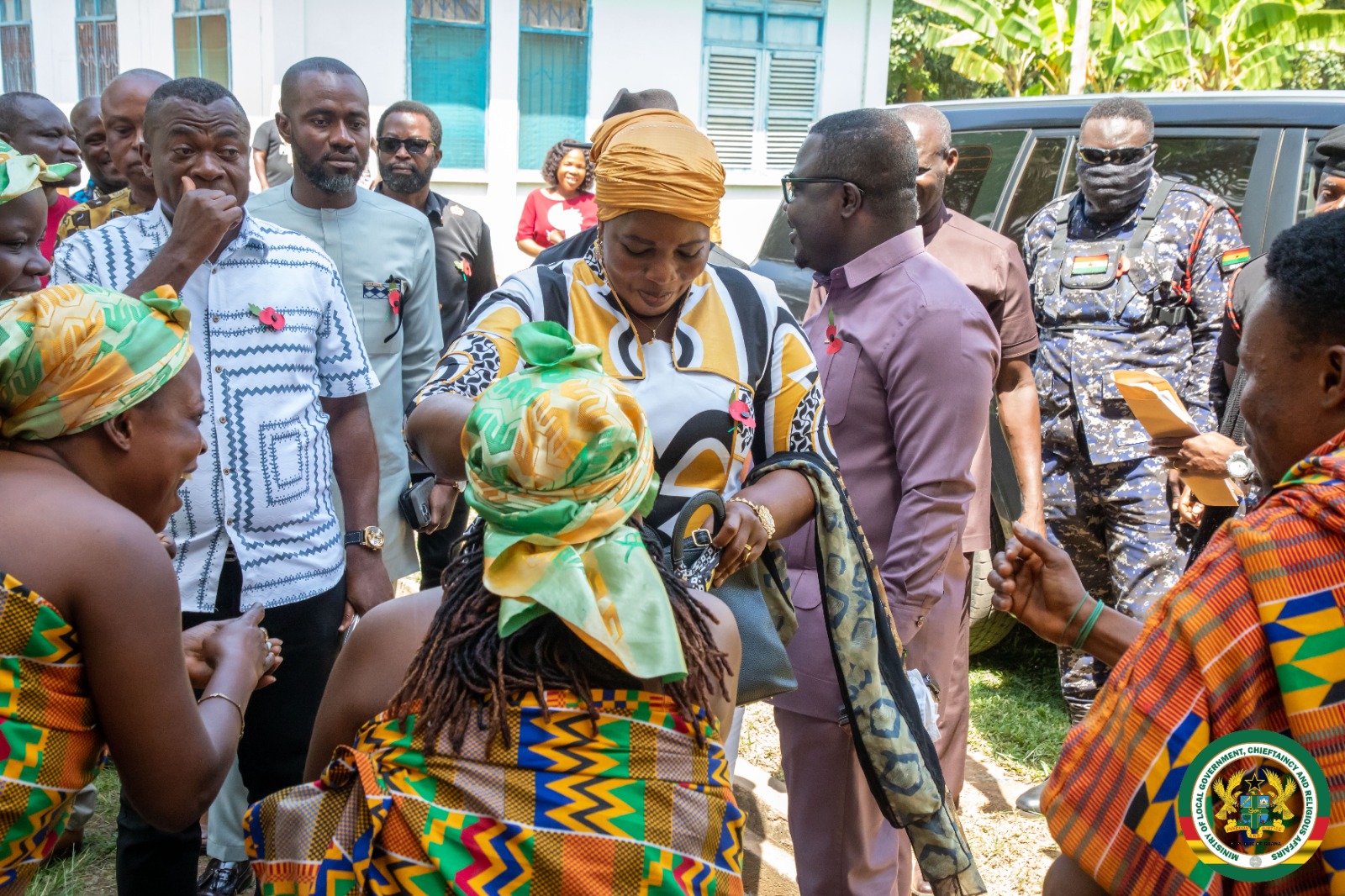President John Dramani Mahama on Tuesday, 18th November 2025, received Daasebre Kwaku Boateng III, Omanhene of the New Juaben Traditional Area and President of the Eastern Regional Traditional Council, at the Jubilee House for discussions on development priorities for the Eastern Region.
The Minister for Local Government, Chieftaincy and Religious Affairs, Hon. Ahmed Ibrahim, joined and led the delegation, consistent with the Ministry’s mandate to strengthen collaboration between government and traditional authorities.
Welcoming the delegation, Hon. Ahmed Ibrahim underscored the essential place of traditional leadership in Ghana’s governance structure and assured the Omanhene that the Ministry remains committed to working closely with the Eastern Regional Traditional Council. He encouraged them to present their concerns openly, noting that their requests would be fully considered at the highest level.
During the meeting, Daasebre Kwaku Boateng III congratulated President Mahama profusely on his assumption of office and expressed strong admiration for the President’s bold policy direction. He commended key initiatives including the stress-free education policy and the free tertiary education for persons with disabilities, describing them as essential interventions that were expanding opportunity across the country.
He also praised the President for maintaining peace and stability in the nation, stating that the calm and sense of direction currently being experienced is strengthening confidence in governance. The Omanhene expressed delight that the President’s policies were reshaping lives and reaffirmed the Traditional Council’s support for the national development agenda.
Daasebre further highlighted key priorities for the New Juaben Traditional Area, the completion of the Central Market, support for a new general hospital, and the continuation of the affordable housing project.
President Mahama welcomed the delegation’s concerns and reaffirmed his commitment to fulfilling the development promises made to the region.
He noted: “We will not leave any community behind. New Juaben will receive the necessary attention, and we will work with your Traditional Council to ensure that every Ghanaian feels the impact of our collective progress.”
The meeting underscored the strong partnership between government and traditional leadership and reflected the Ministry’s ongoing commitment to building a governance system that listens, collaborates, and delivers for all regions.
Source: Darling Maame Efua Cann
MLGCRA PR UNIT

